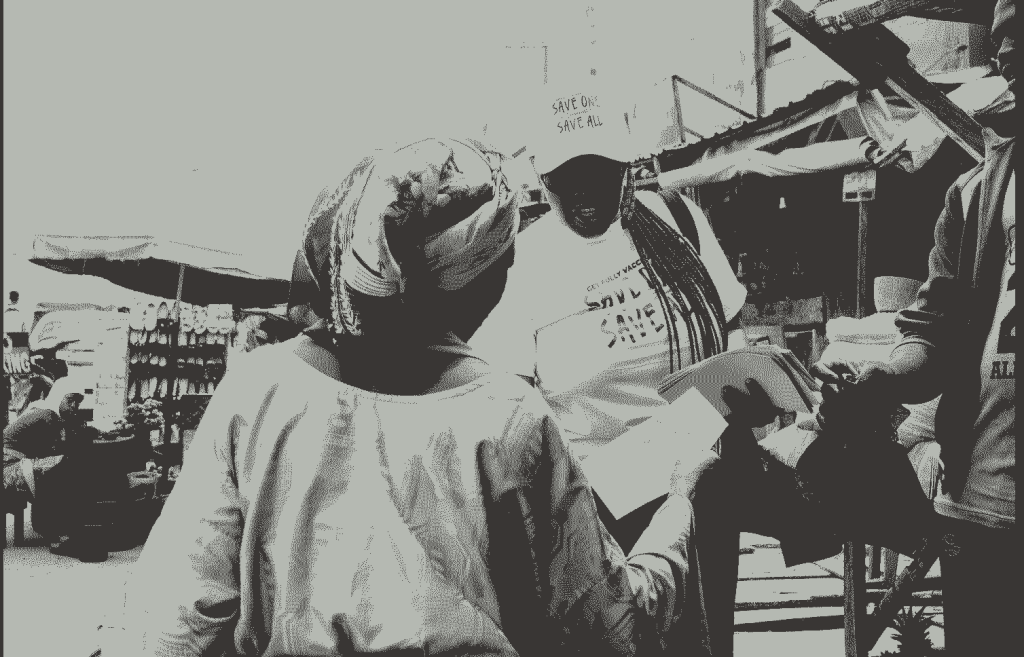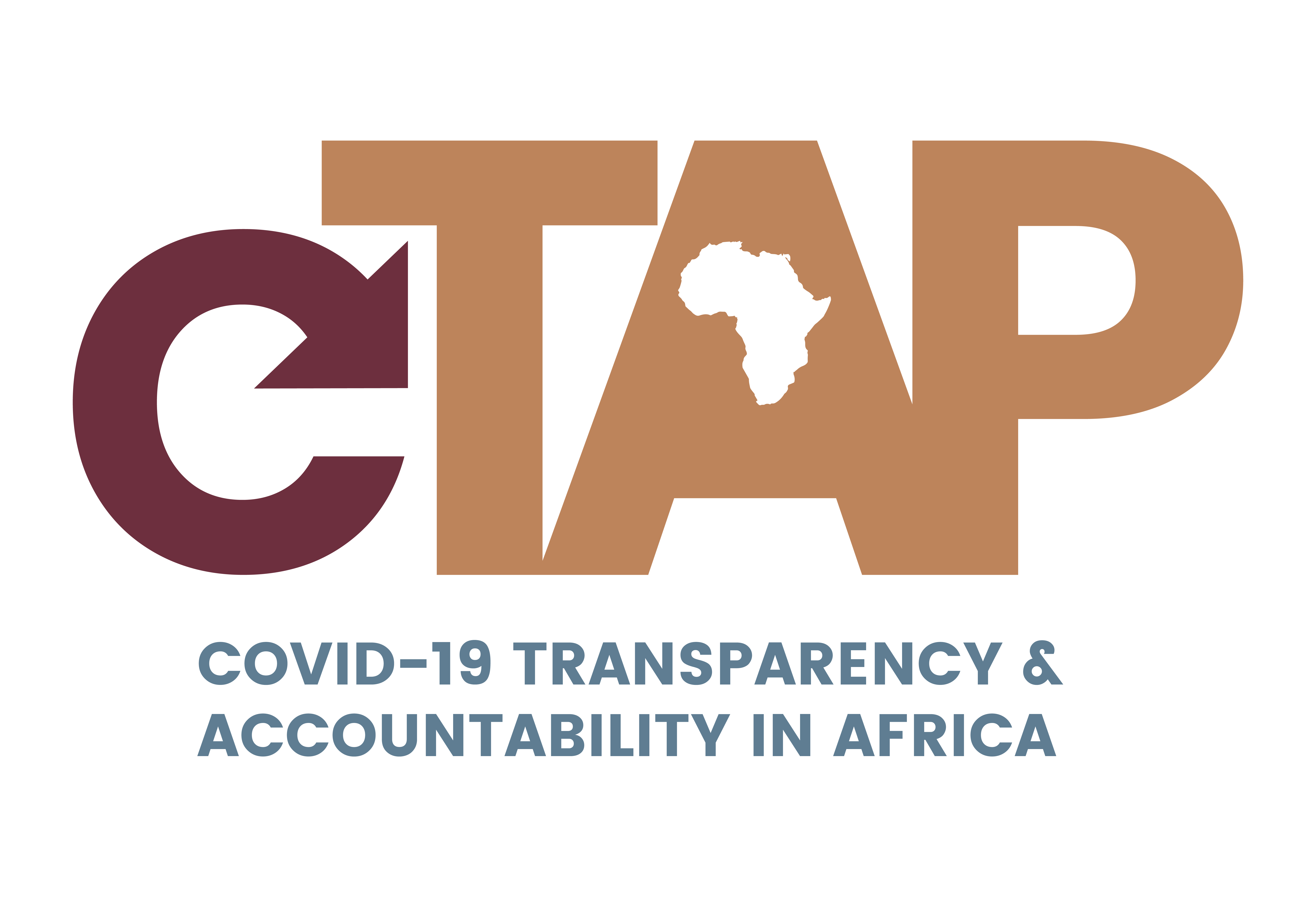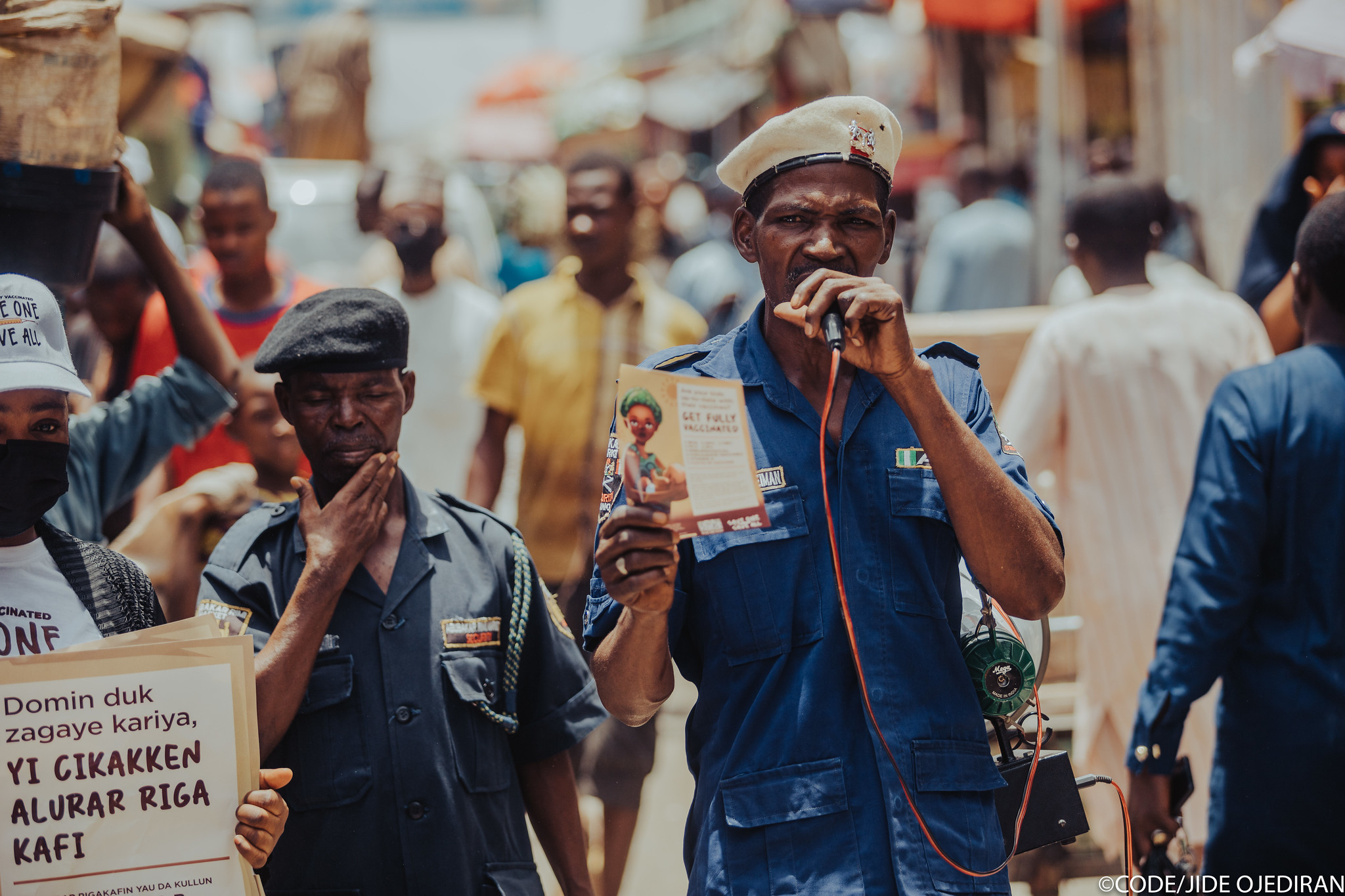By Esther Okoloeze
Keeping up with COVID-19 Transparency and Accountability Project (CTAP) mission to build stronger health systems and healthcare accountability and governance in Africa, BudgIT and Connected Development (supported by Hilton Foundation) embarked on a nationwide sensitization campaign to create awareness about the Covid-19 vaccination. The CTAP campaign tagged #SaveOneSaveAll, which started on April 2, 2023, is scheduled to cover all six geopolitical zones in Nigeria from April to May.
Already, the Southwest campaign successfully launched from April 3 to 7 in the historic city of Ibadan, Oyo state, where the team from both organizations hosted an extensive Market Sensitization Road Walk, a Campus Activation Campaign, and a Town Hall Meeting with health workers and community leaders from Southwest states – Osun, Oyo, Lagos, Ogun, Ondo, and Ekiti.
These events witnessed a great turnout and active participation in all dimensions. Starting with the market sensitization road walk around markets in Ibadan; the citizens welcomed our team with open arms and interest in learning how to immunize themselves against the virus. Many who spoke to us confirmed that they had taken at least one dose of the vaccine. At the same time, some mentioned that they found it difficult to take the next dose for several reasons, including unavailability of vaccines, change of location or address—theirs and those of the health workers, etc.
However, our interactions were also eye-opening as we learned some hardcore challenges responsible for Nigeria’s less than 25% vaccination rate. As our team leads and community champions engaged with the citizens, we discovered that, in many cases, the challenges confronting the vaccination’s acceptance are multi-dimensional. On the one hand, are religious myths and influences which brainwash people into believing the vaccine is an evil ploy by the West to reduce the world’s population. On the other hand, the allotted funds get stuck in someone’s pocket without anyone to account for how each state’s Covid-19 intervention fund is used.
The diverse reasons for refusing to take the jab are somewhat ridiculous; however, in many cases, these are fueled by misconception and misinformation. Some of the market people and passersby we spoke with gave the following as their reasons for not taking the vaccine:
“I don’t need it,” Omolade, a commuter, said when we asked why she hadn’t gotten a shot.
“The blood of Jesus will save me,” a fufu seller sitting by her ware said, uninterested.
“I no want to die. People say e dey kill and some people don fall sick when they collect the medicine,” Ajao, a chatty Okada driver, and another colleague told us at Orita, Challenge.
The case was not different when we spoke to Federal College of Animal Health and Production Technology students in Ibadan. Many of them, like their parents, also have some limiting beliefs that keep them from getting vaccinated. Adebayo Olalekan, a 500-level student and President of Agricultural Extension and Management, shared the state of the vaccine collection in the school with our team. He expressed that their initial awareness and enthusiasm to get the first vaccine died down after a while, adding that there is no adequate provision for many of the students yet to take the second and third shots.
At the town hall meeting, the enthusiastic community health workers and community leaders did not hesitate to bear their hearts on the dire healthcare situation in Nigeria. Coupled with the people’s prejudice, they confront non-payment of salaries and unequipped health facilities. Their challenges also come from the body language of religious and community leaders who ride on the wings of their religious and political might to swing unhealthy narratives that mislead people.
“While we have a health emergency on the one hand, we have an economic emergency on the other. However, it is a battle we can overcome with the joint effort of civil society organizations, health and community leaders, and other stakeholders,” Iyanuoluwa Bolarinwa, CTAP Lead, BudgIT, informed them in his open address. He added, “Nigeria and Africa must invest in research and vaccine development. We are still asking for what was spent on COVID-19 vaccination in Nigeria, but till today, we have not gotten an answer.”
Mukhtar Modibbo, CTAP Lead, CODE, told them, “To progress with the vaccination rate, we must localize the problem for the local people. They shouldn’t end in the town hall.” He added that Nigeria became polio-free because organizations pulled funds to eradicate it. In the same way, “If we agree that COVID-19 exists, we can devise innovative ways to tackle the issues by learning from countries like Kenya.”
At the end of the meeting, the participants were confident that if all stakeholders put in their best effort, the situation of primary healthcare and, specifically, the COVID-19 vaccination rate would improve.
In a nutshell, from our engagement with the health workers, their challenges include but are not limited to the following:
- The belief that there is nothing like COVID-19 or it’s not a poor man’s disease; hence many rural people see no reason to take the vaccine
- The notion that it is a way of controlling the world’s birth rate or that health workers want to put something deadly on them
- Citizens believe that if they take alcohol and herbs, the disease will not catch them.
- Online registration discourages people because, at the health centre, they are told it’s invalid and made to go through the registration process all over again.
- Bad servers and missing data in the healthcare system directory usually lead to confrontations between the health workers and the locals.
- Server upgrade affects tracking the status of people who have moved away from where they took their first dose.
- Health workers conniving with citizens to forge vaccination report
- Ghost health workers who are co-opted into vaccination campaigns by their associates
- Non-payment of health workers’ salaries, especially frontline health workers who risked their lives during the pandemic
From Ibadan, our team has advanced the campaign to Gombe, a converging point for all Northeast states—Adamawa, Bauchi, Borno, Gombe, Taraba, and Yobe. In future posts, we will update you on how the Northeast and other regions’ campaigns go. You can subscribe to our newsletter to keep a tab on what’s next in our mission or follow the #SaveOneSaveAll hashtag on Twitter and Instagram.


